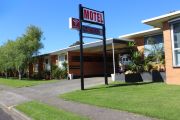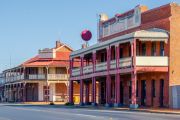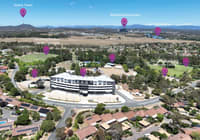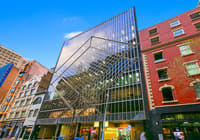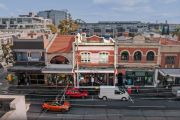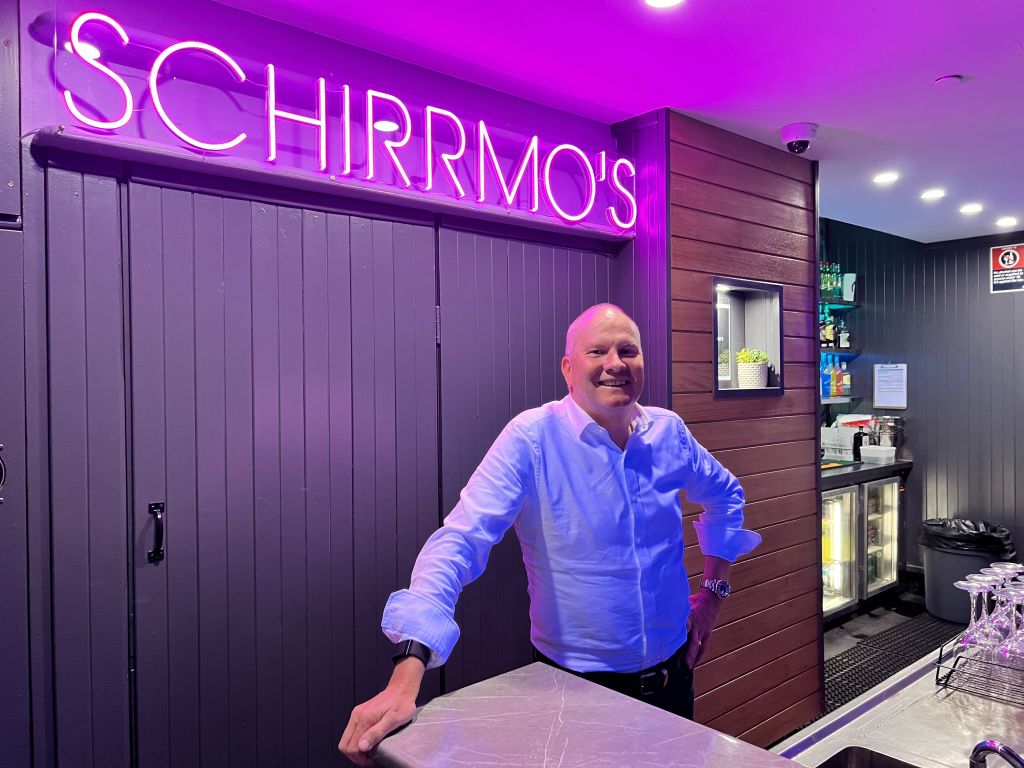
Find out why this Sydney bar is buzzing on a Wednesday night
It’s Wednesday night and the newest basement bar in the Sydney CBD is buzzing. With a decor of beer barrels, a glow of pink neon and a cool grungy vibe, Schirrmo’s looks an instant success.
“We love this place!” says Carla, 24, a student from Spain who’s drinking with her mates after finishing her part-time shift in a nearby city centre store. “It has a very nice atmosphere. It’s so friendly and welcoming.”
Yet this bar isn’t quite what you’d expect. It’s actually an extension of the youth hostel above – part of the dramatic reinvention of an age-old brand.
While the global youth hostel movement started out in Germany in 1909 as the creation of school teacher Richard Schirrmann to provide affordable accommodation for students to see the countryside, it’s come a huge way since.
As it spread throughout the world, the Youth Hostel Association (YHA) quickly became known as a chain of cheap, abstemious hostels with chores, like woodchopping for the fire, that every guest had to undertake, a warden to insist on lights out at 9.30pm and making one’s own bed and changing sheets.
But today, youth hostels are being totally recast and, although still an inexpensive option operated by a not-for-profit institution for anyone travelling, or staying and working, anywhere, they’re now a great deal more relaxed, hip and … hybrid.
“Before COVID, we were very much focused on backpackers and accommodation for backpackers,” said YHA Australia chief executive Paul McGrath. “The pandemic was devastating for us, but we felt we shouldn’t waste a crisis. So, we decided to take the time to evolve into a brand-new business with a wider set of customers – both domestic and from overseas.
“We now offer a range of better-quality accommodation, and while we still have dorm rooms and rooms with shared facilities, 32 per cent of our product has private facilities. We now want to provide a full offering with coffee and food and wine and bars as a hybrid hotel, but while still building community among our guests, so they can meet other people while travelling.”
It’s a global change to the business, which is now fully underway in Australia, with Schirrmo’s bar at the Sydney Central YHA in Haymarket just one of the novel additions. There’s currently a strategy of liquor licenses for all major YHA properties and breakfast being offered across the entire 40-property network around the country, as well as an upgrading of kitchen facilities for both self-catering and the provision of meals.
At the youth hostel on Sydney harbour, for instance, there’s work being done to renovate a cafe to offer breakfasts, lunches and dinners, and a bar is to be constructed on the hostel’s rooftop, with stunning views of the Opera House. In Melbourne, at the Flinders Street YHA, a bar is being opened at ground level; in Brisbane’s Upper Roma Street hostel, there’ll be a rooftop bar to make the most of the outlook over the river and CBD while plans are being formulated in Adelaide for a cafe-restaurant to be opened mid-2023.
The YHA’s upcoming new flagship hostel, in the Atlassian building now under construction at Sydney’s central, will also have a brewery as well as a bar, a 24-hour restaurant and a climbing wall alongside its five floors of 480 beds.
At the more remote properties, like the one in an isolated spot at Sydney’s Pittwater and in the national park at Victoria’s Grampians, there’ll be at least barista-standard coffee machines among the extras.
“Food and beverage is a cornerstone of our growth strategy moving forward, and we expect it to deliver 30 per cent of our revenue for 2023,” said McGrath. “We’re now appealing to families who want an affordable holiday, grey nomads and remote workers, people on a working vacation, sporting groups and mixed groups, as well as those backpackers.
“We’re now seeing the market gradually coming back, and we’re arranging activities and events to help allow people to connect both with each other and the culture of where they’re visiting. We’re bringing local Aboriginal and Torres Strait Islanders into our properties to share their experiences, and we also have an environmental focus, with activities like bush regeneration and re-wilding in Pittwater.”
Competition is fierce for the tourist dollar, but McGrath believes youth hostels will now have a real edge over their rivals. He believes hotels can be quite sterile environments, Airbnbs can be quite lonely, and dedicated backpacker hostels too rowdy.
Youth hostels, however, while still affordable – a double with private facilities is $120 a night at Sydney’s Haymarket hostel – can be very comfortable, offer so many more facilities (now) and also be extremely friendly. That’s the quality YHA pioneer Schirrmann fought for, even during wartime.
That’s also the strength of Schirrmo’s, believes manager Simon Fraser, a veteran of the hospitality industry. Now opening four evenings a week, from Wednesday to Saturday, it will soon be extended to six nights. The clientele – and there’s space for 200 at a squeeze – is half locals in the city and half YHA guests.
“I think people like it here as it’s such a friendly bar,” he says. “It lends itself to conversations between strangers. “We’ll be launching an events schedule in the next few weeks two, with a different activity each night of the week, like comedy evenings and drag quiz nights.
“We’re now getting in a really great mix of people, and it’s a really great addition to the youth hostel.”
